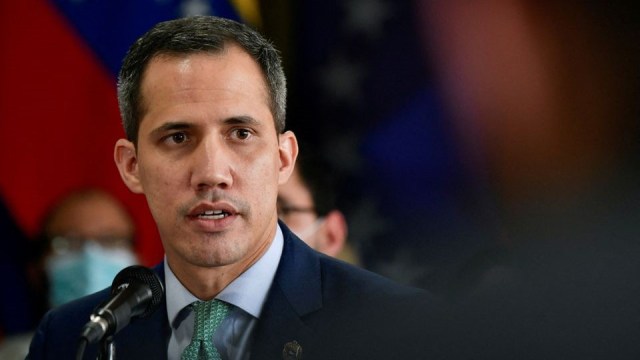
Leadership struggles among Venezuela’s political opposition to President Nicolás Maduro could further complicate the chances for any potential easing of oil-related sanctions by the administration of US president Joe Biden.
By Argus Media
Oct 27, 2022
The opposition led by former head of Venezuela’s national assemblyJuan Guaido has failed to make much headway since the US recognized him as the legitimate Venezuelan president in 2019. Some factions of the opposition have discussed replacing Guaido, according to sources in the country.
But replacing Guaido would create a cascade of other issues that further complicate the US position, from returning US refiner Citgo back to Maduro’s control to forcing the US to recognize him as the rightful leader of Venezuela.
“The [Maduro] regime is more powerful than it was and the opposition is less powerful,” said Carrie Filipetti, a former deputy assistant secretary for Cuba and Venezuela in the US State Department. “That is what Biden is grappling with as it considers whether to change the sanctions policy.”
Openings with a catch
Russia’s invasion of Ukraine and ensuing tighter oil supplies could create a political opening for the US government to allow Venezuela to grow production. The US administration may see easing sanctions as an inducement for Maduro to allow free and fair elections as the US and the Venezuela opposition have demanded, Filipetti said at an event yesterday hosted by Washington think tank the Wilson Center.
The first step in relaxing the US sanctions regime likely would involve reinstating Chevron’s ability to lift crude from its joint ventures with PdV. Italy’s Eni and Spain’s Repsol earlier this year received US authorization to export crude from Venezuela, even though they can only use proceeds to settle debt or pay for maintenance and taxes.
Yet factions in the Venezuelan opposition strongly oppose this approach, and want Guaido to take a harder line.Some groups have discussed replacing Guiado as leader, sources have told Argus.
“The opposition is in transition and, at some point, there could be a vacuum that benefits Maduro,” one analyst in Caracas, Venezuela, with ties to the opposition and energy industry said.
An adviser to Guaido noted that talks of removing him have regularly ebbed and flowed. Guaido has said he will remain in his post until free and fair elections are held.
But removing the leader with a tenuous legal claim to being the interim president of Venezuela – based on Guiado’s 2019-21 presidency of the now defunct national assembly – means the US would likely need to recognize Maduro instead as president. Guaido’s supporters have been able to control US refiner Citgo – Venezuela’s most valuable asset abroad – because of the US recognition. Removing this would likely lead to Citgo moving back under Maduro’s control.
“There is no clear strategy to keep one of the largest refining companies in the US out of Maduro’s hands once Guaido is gone,” the analyst said.
And edging the opposition out of talks would make any sanctions discussions essentially bilateral between the US and Maduro, which could be unacceptable politically for the US, said Risa Grais-Targow, director of Latin America for the Eurasia Group.
Awkward technicalities
Still, the US’ stance on Venezuela is becoming increasingly awkward and seemingly unilateral, Grais-Targow added. Colombia has reestablished diplomatic ties and opened some border crossings with its neighbor. Leftist Luiz Inacio “Lula” da Silva is narrowly favored to win the presidency in Brazil on 30 October, and would not align with the US against Maduro, she said.
Unlike the US, European and Latin American countries have maintained diplomatic presence in Caracas even when they recognized Guaido as interim president. For the US, recognizing Maduro’s presidency likely would involve moving US diplomats accredited to Venezuela back to Caracas from Bogota, Colombia, where they are currently based.
Even if the US could navigate the political situation, there remain technical challenges to lifting sanctions on Venezuela. It is one of the US’ most complicated sanctions regimes, said energy lawyer Adam Smith with Gibson and Dunn. It involves seven executive orders, three other legal determinations, three statues and more than 36 general licenses – which are exceptions to the sanctions.
Changing some of the licenses is feasible – and would allow Chevron, the only US producer to remain active in Venezuela, to expand its activities. But any broader sanctions relief would face challenges, including by indictments against Venezuelan officials and others close to the regimehandled by the relatively autonomous US Department of Justice, Smith said.
And even if there is sanctions relief, any meaningful increase in Venezuela’s output would require many months, if not years, of investment and work. Production is just a shadow of its pre-sanctions era levels and most fields and facilities are considered barely functioning after years of neglect and poor management.
US midterm elections on 8 November could also weigh on talks, he added, such as in Florida where Governor Ron DeSantis (R) has marshaled forces to oppose any lifting of sanctions.
“Let’s see what happens after the mid-terms,” the adviser to Guaido said. “But if the Republicans win big, there is no way Guaido will go.”
Opposition in the US Senate to restarting dialogue with Maduro is not limited to the Republican party. Senate Foreign Relations Committee chairman Bob Menéndez (D-New Jersey) has criticized the White House for considering sanctions relief for Venezuela.
…
Read More: Argus Media – Guaido’s struggles factor in Venezuela sanctions talks
…

